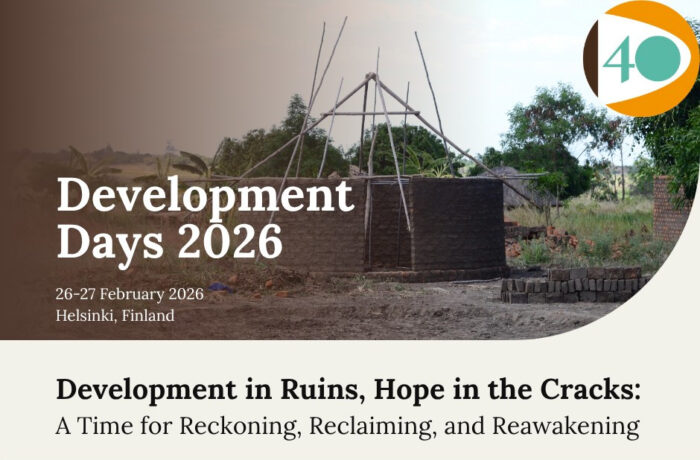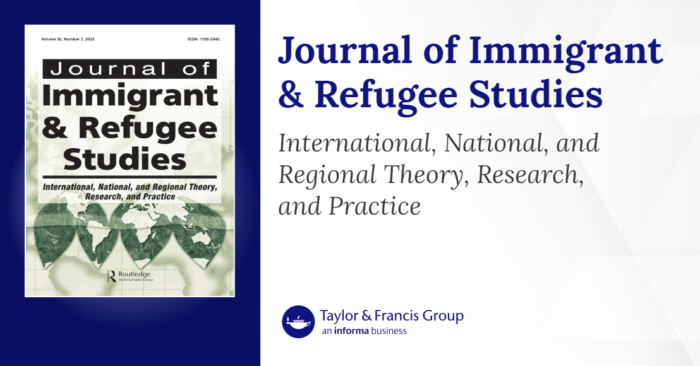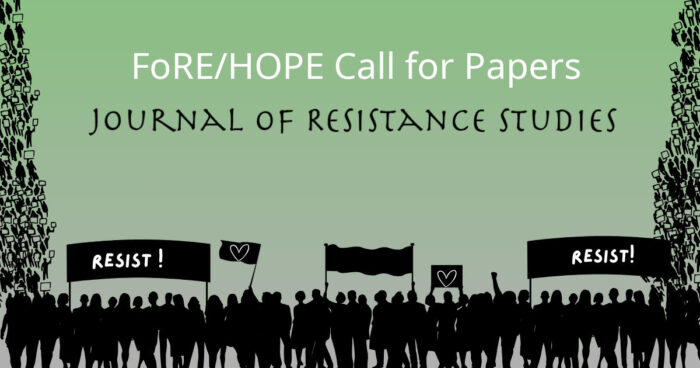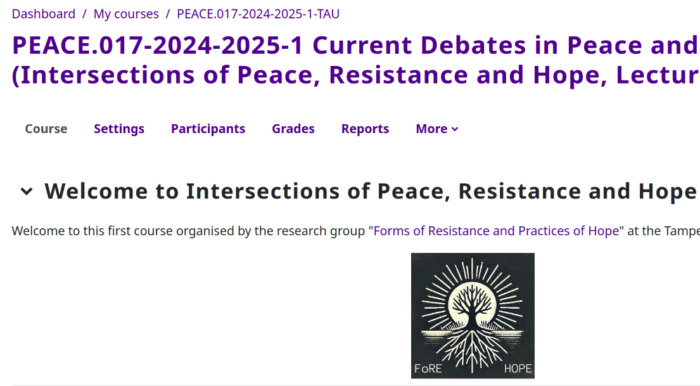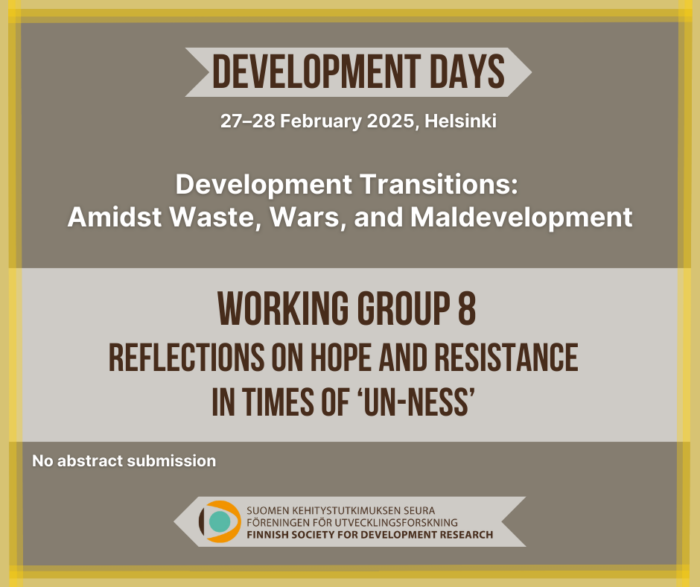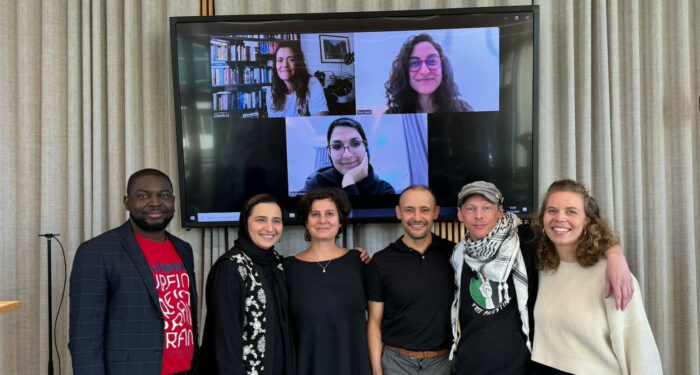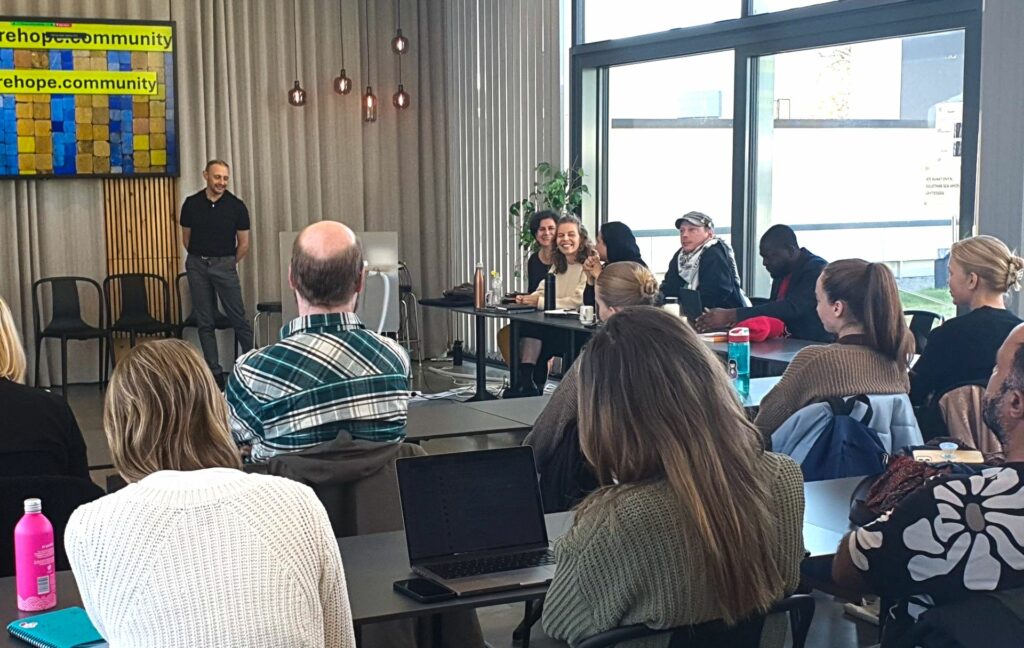As part of this project, the FoRE/HOPE team developed a Master’s degree course titled Intersections of Peace, Resistance, and Hope at the Tampere Peace Research Institute (Tampere University).
During the lectures, students are introduced to the theoretical background and primary concepts of everyday resistance and hope, exploring the key theorists in each area and examining their relationality and intersections. The course aims to familiarise students with the entanglements of resistance and hope in everyday life, focusing on power dynamics ‘from below’ and everyday interventions. The classes offer insights into the concept of resistance, identifying the subjects or actors involved, their objectives, intentions, motivations, and the methods or acts they employ.
The course further examines the complexities and intersections of resistance and hope within everyday life. Following this theoretical exploration, attention shifts to the student occupation at Tampere University campuses in autumn 2023. Drawing from materials related to this occupation, students reflect on the intersections of resistance and hope demonstrated through this non-violent action.
Subsequently, the course explores how resistance and hope are embodied, with a particular focus on the Woman-Life-Freedom Movement in Iran. Students investigate how resistance manifests through creative actions possessing dynamic and notably aesthetic dimensions. Through this case study, students understand how Iranian women have transformed their invisibility into visible acts of resistance in public spaces. Discussions will unpack the meanings and narratives of various forms of resistance and explore the potential for innovative practices of resistance and hope using diverse mediums, including art and digital platforms.
Students are then introduced to everyday forms of resistance within the contexts of racialisation, Islamophobia, and xenophobia in Finnish society. Drawing from doctoral research with individuals of Somali origin living in Helsinki, it is discussedhow mundane encounters and everyday practices can serve as resistance against oppressive structures. This lecture examines the structures of oppression and violence prevalent in Finnish society related to xenophobia and racialisation, followed by an in-depth discussion on Somali communities in Finland utilising ethnographic data.
Following this, the course addresses the use of art as a medium for expressing resistance and hope. Artistic expressions are discussed as means of countering border violence, fostering hope, and promoting everyday peace.
The last example related to Finnish society deals with West African migrants. Due to factors such as colonialism, geographic location, armed conflicts, economic crises, and personal ambitions, there have been continuous migratory flows from Africa to Europe. Lectures explore and reflect upon the experiences of West African migrants in Finland, examining connections between their migratory intentions and trajectories—driven by hopes for better lives—and the various challenges and resistances they encounter in Finland.
The course also explores the gradual erasure of Indigenous identity, agency, and epistemology within the context of Palestinian experiences under settler colonialism. Two mandatory readings provide a theoretical foundation for understanding Palestinian resistance, particularly through the use of humour. Initially, discussions address the systematic, slow-moving genocide Palestinians have experienced since the British Mandate. Subsequently, the course examines daily practices of erasure enacted by the Zionist settler-colonial project, culminating in an analysis of how Palestinians utilise humour as a form of resistance.
In the closing session, Theatre as a Practice of Resistance and Hope, investigates theatre’s potential as a means of expressing resistance and fostering hope. Students will integrate insights from previous lectures and readings to imagine potential dramaturgies, engaging physically and through writing. Activities include physical exercises, improvisations, and discussions designed to activate emotional and intuitive faculties in theatre-making. Prior experience in theatre practice is not necessary, and participation will be inclusive of everyone’s abilities and needs.
To conclude the course, students will present their own analytical cases in two seminars, with the aim of integrating all the common knowledge gained during the course.
Due to factors such as colonialism, geographic location, armed conflicts, economic crises, and personal ambitions, there have been continuous migratory flows from Africa to Europe. Lectures explore and reflect upon the experiences of West African migrants in Finland, examining connections between their migratory intentions and trajectories—driven by hopes for better lives—and the various challenges and resistances they encounter in Finland.
The course also explores the gradual erasure of Indigenous identity, agency, and epistemology within the context of Palestinian experiences under settler colonialism. Two mandatory readings provide a theoretical foundation for understanding Palestinian resistance, particularly through the use of humour. Initially, discussions address the systematic, slow-moving genocide Palestinians have experienced since the British Mandate. Subsequently, the course examines daily practices of erasure enacted by the Zionist settler-colonial project, culminating in an analysis of how Palestinians utilise humour as a form of resistance.
The final session, Theatre as a Practice of Resistance and Hope, investigates theatre’s potential as a means of expressing resistance and fostering hope. Students will integrate insights from previous lectures and readings to imagine potential dramaturgies, engaging physically and through writing. Activities include physical exercises, improvisations, and discussions designed to activate emotional and intuitive faculties in theatre-making. Prior experience in theatre practice is not necessary, and participation will be inclusive of everyone’s abilities and needs.

